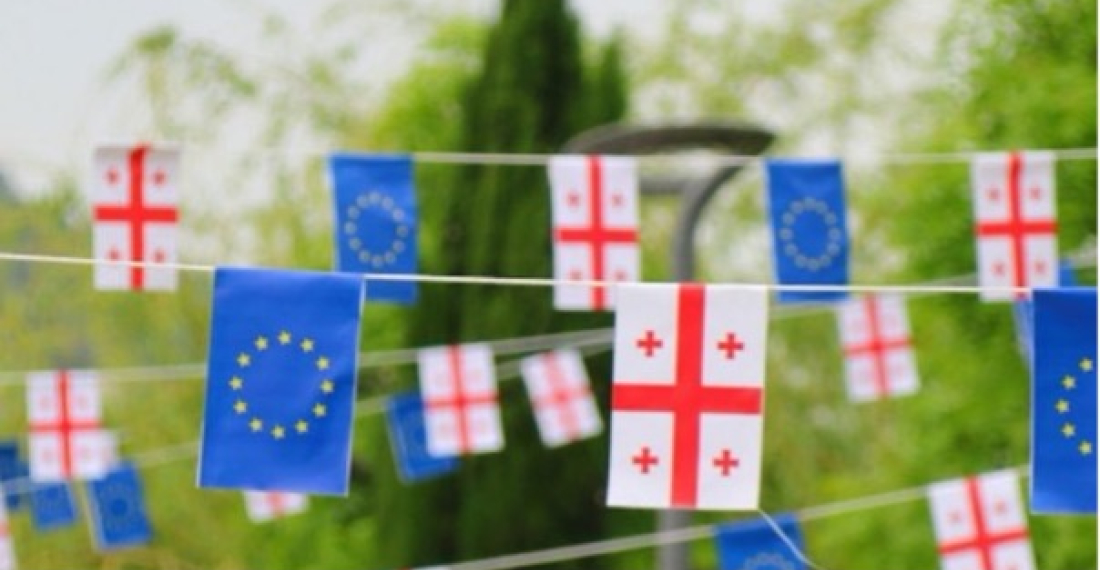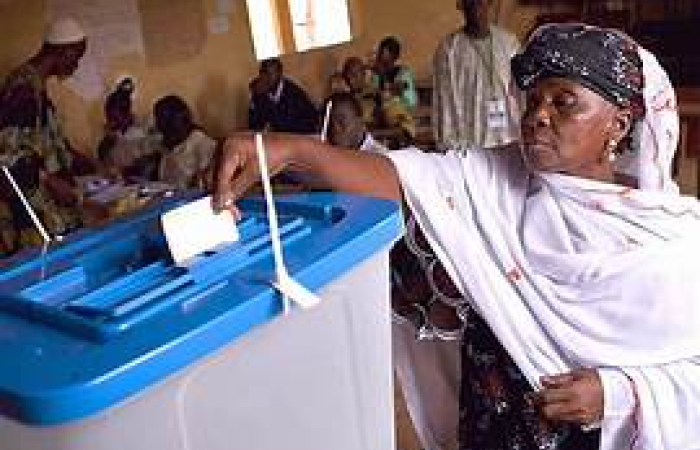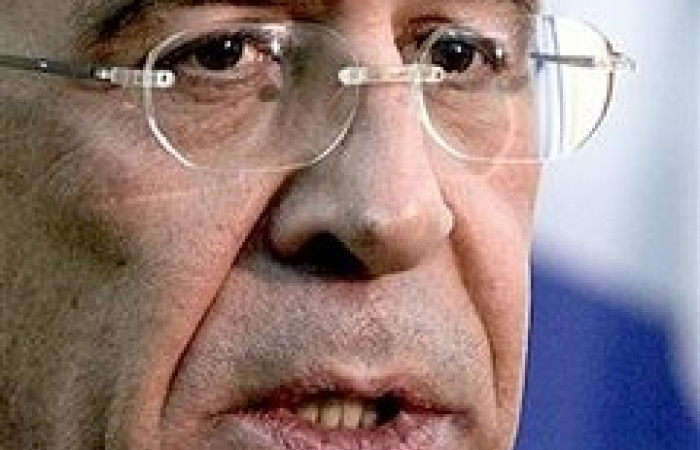|
This is a commentary prepared by the editorial team of commonspace.eu and was first published in the electronic newsletter Caucasus Concise on 16 November 2023 It has been a roller-coaster sort of week for EU relations with the South Caucasus. It started on Wednesday (8 November), with the decision of the European Commission to recommend that Georgia be recognized as a Candidate Country, opening the way for eventual membership. By Tuesday, (14 November) the Foreign Affairs Council was considering providing military assistance to Armenia through possible assistance from the European Peace Facility. In the days in-between relations between the EU and Azerbaijan appeared to have dipped to their lowest point in a decade, with Azerbaijan accusing the EU of inciting separatism. Except that on Wednesday (15 November), the Azerbaijani presidential foreign policy aide surfaced in Brussels where he was told that Azerbaijan was an important partner for the EU in the South Caucasus and that the EU will continue to support the Armenia-Azerbaijan normalisation process to advance a peaceful and prosperous South Caucasus. One would like to think that all this was part of some grand strategy. Russian foreign minister Sergei Lavrov seems to think so, accusing the EU of trying to oust Russia out of the South Caucasus (and Central Asia). But a closer look at this week’s events suggest that the EU is doing, what it often does: muddling along, reacting to events and situations rather than fulfilling some grand strategy. This is risky, and the EU needs to develop a strategic framework for dealing with the South Caucasus. |
|
|
|
Georgia - candidate status by default Anecdotal evidence suggests that most in the EU – both in institutions and in the member states, would rather not give Georgia candidate status at this stage. Yet the decision of the Commission to recommend it was greeted with a sigh of relief in both Brussels and Tbilisi, and as far away as Washington and London. Not to have done so would have distabilised Georgia, and disrupted decades of work to embed it in a European orientation. The Commission, in proposing that candidate status be granted, again listed its long list of things Georgia needs to do, adding another two new criteria for good measure, including the need for Georgia to align itself more with EU positions in international fora. Some suggest that the Commission simply kicked the can down the road. Crucial parliamentary elections in Georgia next year will define – in the way they are conducted, as much as in the result – the country’s future relations with the EU. But that would be underestimating the significance this decision of having a South Caucasus country accepted as an EU candidate country, with all the political, strategic and economic implications that entails. Giving Georgia candidate status is a political decision, and the right one. Whatever the reason or circumstances for that decision, both Brussels and Tbilisi now need to rise to the occasion and make this opportunity work. Both must also understand that this decision has implications for the rest of the region too. There appears to be little sensitivity in Brussels on this aspect of the issue. |
|
Worried about Armenia This week, Armenia’s recent love-in with the European Union appeared to have reached new heights, and throughout early November senior Armenian officials descended on Brussels making the most of the moment when their country appeared to be Brussels flavour of the month. Two things have contributed to this, first Western countries perception that under the leadership of Nikol Pashinyan, Armenia is a fledgling democracy that is trying, at great risk, to escape the clutches of Russia; and secondly the sight of a hundred thousand Armenians packing up their bags and leaving their homes following the 19 September Azerbaijani military operation in Karabakh caused considerable disquiet. Triumphalist Azerbaijani rhetoric before and since left many with the impression that Azerbaijan still had territorial grievances which it was ready to correct with military means. Briefing journalists after the meeting of the Foreign Affairs Council on 14 November, , EU High Representative, Josep Borrell said that the European Council “discussed how to strengthen our cooperation with Armenia and support its democratically elected authorities, its resilience, its security and the continuation of reforms in the country. We decided to beef up our mission in Armenia: more observers and more patrols in sensitive areas of the border. And we will explore a possible support to Armenia under the European Peace Facility and options for visa-liberalisation for Armenia. We have to be very much vigilant for any attempts of destabilisation of Armenia, internally and externally. And our message to Azerbaijan has been clear: any violation of Armenia’s territorial integrity will be unacceptable and would have severe consequences for the quality of our relations. We call for the resumption of negotiations between Armenia and Azerbaijan and on the work done by the President of the [European] Council [Charles Michel]. We need a peace treaty to be concluded and we are committed to continue our mediation role.” It is no secret in Brussels that Borrell has not mastered the nuances of the South Caucasus. This may have allowed Azerbaijan to read more into his statement than was necessary, triggering a toughly worded counter statement by the Foreign Ministry accusing Borrell of inciting separatism – which he clearly was not. Moscow also got agitated, with both Lavrov, and his mouthpiece Zakharova wagging their finger at both Brussels and Yerevan. Avoiding a crash in EU-Azerbaijan relations In contrast EU Azerbaijan relations soured in the last days. EU – Azerbaijan relations have had a turbulent history, but stabilized in recent years as both sides understood the importance – and benefit – of working together, in key areas such as energy and energy security; security and the spread of radicalization, connectivity, climate change, and other issues. Many think that relations remain far below their potential. The latest problems started off as problems between Azerbaijan and France, but French diplomacy cleverly transformed them very quickly into Azerbaijan-EU problems, and the Azerbaijanis fell for the bait. President Aliyev refused to attend the long anticipated summit with the Armenian prime minister and European leaders in Granada in October. He has also procrastinated about attending an alternative meeting in Brussels in November. This left European officials irritated. The negative rhetoric appeared to increase sharply in the last days, suggesting a crash in EU-Azerbaijan relations was imminent. But on Wednesday (15 November), somewhat unexpectedly, Azerbaijan’s president foreign policy aide, Hikmet Haciyev surfaced in Brussels for meetings with EU officials, including senior aides of EU Council president, Charles Michel. Michel’s aide, Simon Mordue wrote on X (formerly twitter) “Discussed with @HikmetHajiyev EU-AZ relations. Stressed that AZ is an important partner for the EU in the Caucasus. The EU will continue to support the ARM-AZE normalisation process to advance a peaceful and prosperous South Caucasus”. It seems that all is not lost. |
|
Muddling along The developments in EU-South Caucasus relations in the last week were overshadowed by bigger events in Gaza and the Middle East, yet were still highly significant. But despite the importance of these decisions EU policy in the South Caucasus still appears to be reactive rather than proactive. The EU has identified interests in the region which it wants to protect. It must however do so whilst manoevering around a very complex geostrategic context and regional situation, taking into account neighbouring countries who similarly have interests, and who have a longer historical footprint, such as Turkey, Iran and Russia. The domestic politics in all three South Caucasus countries, is to put it mildly, eventful and complicated. The EU, however, continues to muddle along, without a strategic vision to which its decisions can be anchored. A window of opportunity for developing a strategic perspective There is an urgent need for the European Union to develop a strategic perspective towards the region that is based on realism, and that has enough support from different stakeholders – Commission, Member States; Parliament – for it to be credible. Developing a comprehensive EU strategy will take time and will require an alignment of different views and interests that may take months, if not years, to achieve. In the meantime however, the EU should have the ambition to publish by early Spring 2024 a short but ambitious statement of intent with its vision for the region that may provide a framework around which different ad hoc policies and initiatives can be organized. The first half of 2024 may offer a window of opportunity for this to happen. Belgium will be in the lead as it will have the six monthly rotating presidency. It has little if any baggage in the region, but is sufficiently interested and informed. These six months will also be the last of European Council president, Charles Michel, himself a Belgian, who has been quite skillful in managing the Armenia and Azerbaijan negotiations, and may yet be able to bring them to a successful conclusion. This will also be the time when Poland is back as a fully committed member of the European family with the return of Donald Tusk as prime minister. Tusk knows the South Caucasus well from his time as president of the European Council. As prime minister of Poland, at the head of an awkward coalition, he will not have much time to spare for foreign policy, let alone for the South Caucasus. But Poland does see the Caucasus as a priority region so hopefully it can also play of a positive role. So there is a chance to turn fudge into strategy, and this window of opportunity should not be lost. source: This commentary was prepared by the editorial team of commonspace.eu |
Commentary
Commentary: EU muddles along in its relations with the South Caucasus






